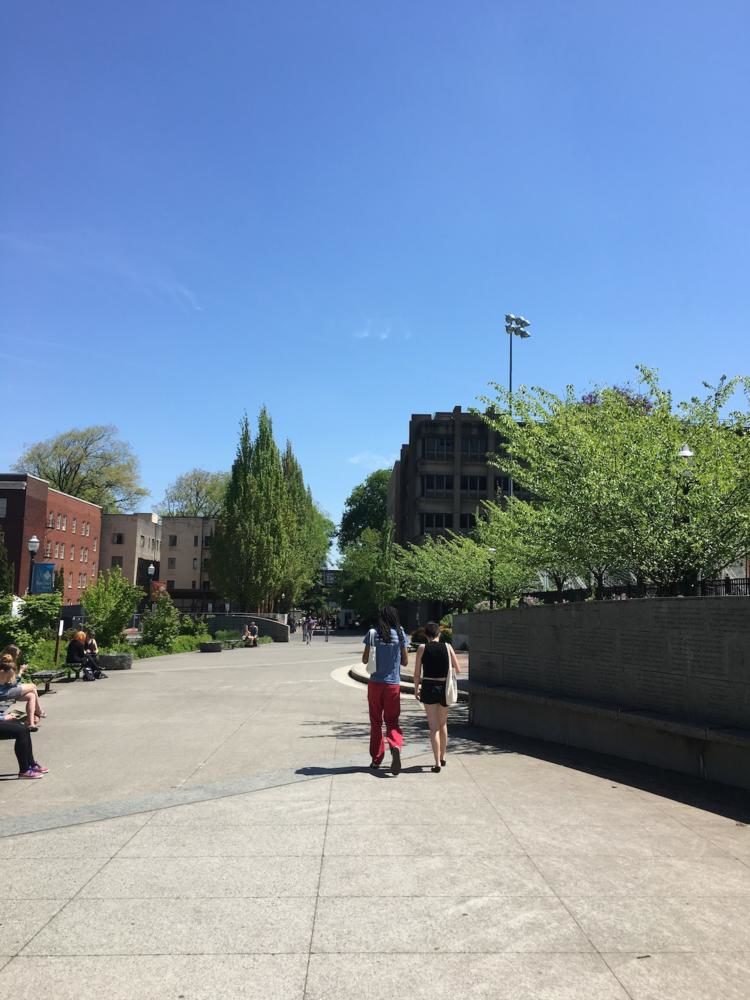Choosing college: a difficult decision
Throughout the education of many adolescents, there is a common theme: a choice that must be made; to decide where to receive their education after high school. It’s a huge decision and the process can be long and confusing. There are short essays and long waits involved, but at the end it can be very rewarding.
Choosing a college may be one of the hardest decisions for Americans, and every year thousands of seniors commit the next four years of their life to a new school.
With huge tuition costs, applications, SAT scores, GPAs and many other factors, the college process is lengthy and stressful for many students. There are certain things each college looks for in a student and, the race for a top-tier school starts on your first day of high school.
When crafting their schedules, students must think of courses that will set them apart from others and draw in a college’s attention. Many Lincoln High School students choose International Baccalaureate courses and other advanced classes to boost their resumés and challenge themselves.
After students set up their schedule, they have to make it to senior year, where the real application process begins. Every college is different so the traits that one looks for may not translate to others. An admissions counselor from Portland State University, Sarah Seeborg, says she looks for certain traits.
The main things that matter grade wise are GPA and SAT and ACT test scores. Although these are usually considered the most important, colleges also like to look outside of school and try to find out what type of person a student is.
“What have grade trends looked like, we want to see students improving their grades throughout high school, SAT or ACT scores, what outside commitments may have impacted their grades,” she said.
The admissions counselors work with students to help them get financial aid. Seniors themselves ultimately make the decision, however, many colleges have a long application process that includes your personal information and then an essay so that admissions counselors can tell what type of personality you have. This takes time, so applying to a large amount of colleges puts extra pressure on students.
The Common Application is a website that allows students to use the same format of application for each college that is on the site and includes over 600 colleges.
Senior Srinik Chinnam expressed the difficulty of applying to college not applying on the Common App. “Don’t apply if it’s not on the common app” Chinnam said.
Although the process is difficult, modern-day technology has also brought some advantages. Being able to research and find colleges with the click of a mouse is very helpful and adds much more stress to choosing a college.
Colleges have their own websites and there are also sites that can help students determine whether or not the college will be a good fit.
Students’ emails begin filling up with college mail sophomore year and continue until graduation. Information is available everywhere students look on the internet and it can really be eye-opening to see all of the possibilities. “I think it has become more overwhelming for students since it is so easy to access information and learn about the thousands of colleges across the nation,” says Seeborg.
This form of finding a college has helped, however, with finding a school that truly suits the applicant. Meg Kilmer, Lincoln’s college career coordinator, and counselor Chris Barrar both agreed that students should find the college that fits their wants and needs best.
This is one of the first big decisions that students have in their lives so finding a college that fits them well is important. Spending the next four years at a college that isn’t a good fit probably doesn’t appeal to most students.
Barrar also said, “Don’t over apply,” although finding the right college is important applying to too many colleges is stressful, and a lot of work. Instead narrowing down options and likely colleges will help students keep the applications to a minimum.
These applications, deadlines, test scores and getting accepted into college are all very big parts of high school students’ lives. However Kilmer assured that not getting into an Ivy League college “won’t ruin your life, there are still many opportunities available.”

